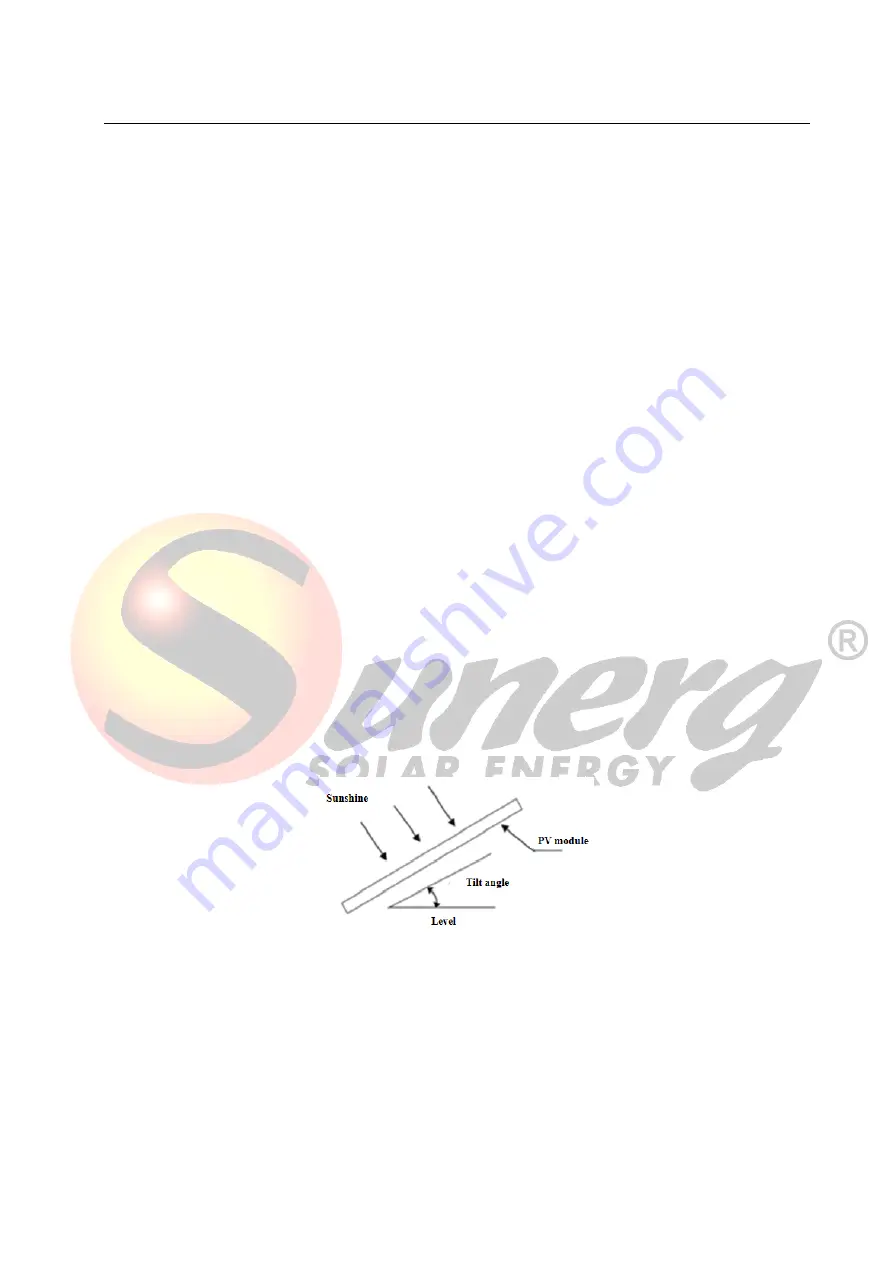
6
such as the seaside, farm, high humidity or wind and other large environment, please consult your local dealer
for professional support and confirmation. If you need to be installed at a high altitude, the altitude should not
exceed 2000m.
5.2.5
PV modules have passed IEC61701 salt-mist, but galvanic corrosion can occur between the aluminum
frame of the modules and mounting or grounding hardware is comprised of dissimilar metals. Modules can be
installed at seaside locations 50m to 500m from the sea, but the components should be protected against
corrosion. For locations ≥500m from the sea, it is low risk with salt-mist corrosion, only annual preventive
maintenance is required.
5.2.6
Modules should be installed in suitable building, or other suitable place to install modules (such as the
ground, garage, building facades, roof).
5.2.7
If modules are installed in locations with frequent lightning activity, the modules must be protected
against lightning strikes.
5.2.8
Do not install the modules in this location with water immersion or near the sprinkler.
5.2.9
The pressure of the wind or snow after installation of the modules must not exceed the maximum
allowable load.
5.3 Tilt angle selection
5.3.1
The tilt angle of the Modules is measured between the surface of the modules and a horizontal ground
surface, the modules generates maximum power output when it faces the sun directly, as shown in figure 2.
5.3.2
Modules each element in series with the same array must be oriented in the same direction and angle.
Different installation directions and angles will cause the modules to absorb the total solar radiation difference,
causing the loss of output power, thus reducing the operating efficiency of the system.
5.3.3
The maximum power is generated when the sun is directed to the module, select the best installation
angle should be considered when the winter module power output. But external or otherwise artificially
concentrated sunlight shall not be directed onto the front or back face of the PV module.
5.3.4
In order to facilitate the cleaning modules and modules in the rain when the surface dust is easily washed
away by rain. For detailed installation angles, follow the advice given by the experienced PV module installer.
Figure 2 Module tilt angle
6 Mechanical installation
All of the installation methods described here are for reference only. Sunerg Solar is not responsible for
providing the relevant installation parts and module installation services.
6.1 Conventional requirement
6.1.1
Ensure that the installed modules and supporting rail of modules are strong enough, the entire PV system
consisting of modules must be able to withstand anticipated mechanical pressure. The installer must provide





































